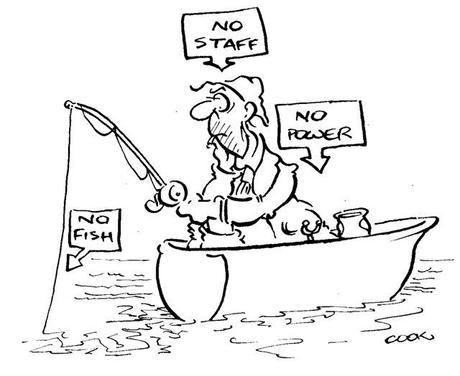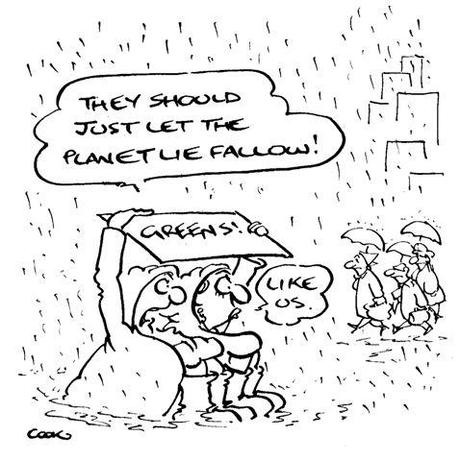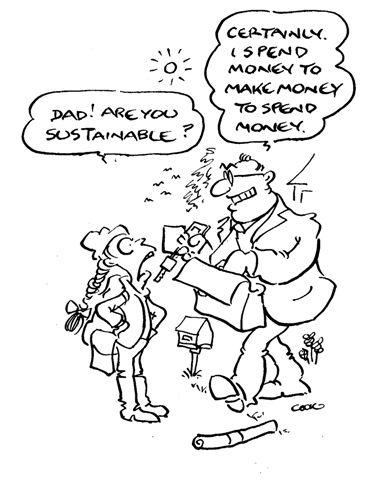 Real changes don’t just sound good.
Real changes don’t just sound good.
Unsustainable green initiatives make no sense. To be embedded in a business model, they need to impact on two things: cost and volume. Either they save money, or they produce more by using less.
It sounds simple, but sustainability is a tricky subject at any level.
The big picture is confusing. Peak oil may make alternative fuels more attractive. Yet a rising oil price subsidizes improved extraction technology, in turn boosting the use of oil.
Sustainable substitutes like ethanol take resources away from agriculture, bringing about food shortages, forcing food prices higher and exacerbating health and starvation issues in poorer countries.
The world could switch to nuclear but proven resources of high-grade ore only amount to a dozen years of global demand. It takes more power to mine low grade ore than it produces.
More reactors mean more chance of failure and more contaminated waste. The last time I looked, the 
Here’s the positive aspect of the nuclear debate
If the world went nuclear, CO2 emissions would only fall about 30%. That’s because most emissions arise when we use power, not when we produce it.
The positive? We have the whole other 70% to work with, without the risk of going nuclear. That means using energy more efficiently and recycling more waste – which brings us back to lower costs and higher volume from the same inputs. Those are the sound reasons why business should examine green initiatives. They can be a source of profitable innovation.
You won’t be solving global warming today
Ask some simple questions
What can you do with what you’ve got? British Sugar generates lots of waste hot water and CO2. It now pipes them to massive glasshouses where it grows tomatoes. Doing so has lifted production from 
What can you do with someone else? You don’t have to be a major corporation. Is your delivery van underutilized? It probably goes to the same places as someone else. Can you join forces?
Or if you can’t, can you outsource to a logistics provider who consolidates deliveries and does so using less fuel, fewer vans and therefore lowers the cost to you? Who can you collaborate with to do more with less?
What are the strategic opportunities? ANZ bank has targeted Asian growth. Applying its existing technology to an underdeveloped market, it launched a branchless banking system in Cambodia offering retail banking and payment services over mobile phones. Called Wing, it captured 20% of the bank account market in less than two years.
Moving onto a more sustainable footing does not have to wait for a major restructuring. What else can you do with the skills, people, resources and customer base you’ve already got? If it reduces costs or does more with less, it will be a sustainable initiative.


